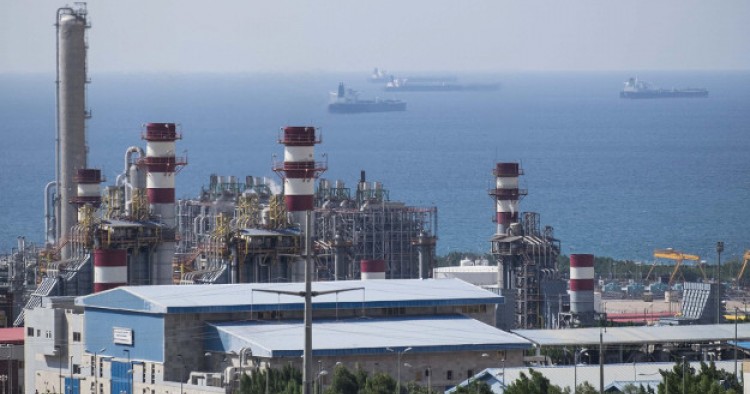The commander of Khatam al-Anbia Construction Headquarters, the construction and engineering arm of the Islamic Revolution Guards Corps (I.R.G.C.), announced today that it will finish ten major projects in the new Iranian year, which began on March 21. According to General Ebadollah Abdollahi, the ten mega-projects include the completion of four phases of Iran’s South Pars gas field, completion of the Persian Gulf Star gas condensate refinery, construction of gas and natural gas liquid (NGL) factories, a project to control surface runoff, construction of a freeway south of Tehran, building a high-speed railroad connecting Tehran to Isfahan, development of the southeastern port of Shahid Beheshti, and construction of two steel factories in the cities of Mianeh and Baft.
Last April, Abdollahi had announced that $25 billion in investment funds had been allocated to the ten mega-projects, and he had asked for $6 billion more to complete the projects.
Comment: Khatam al-Anbia is not merely a construction firm. The I.R.G.C. conglomerate has significant political and economic power in Iran and funds I.R.G.C.’s operations abroad. The organization and its front companies also implement projects in regional countries, particularly in conflict zones such as Syria and Iraq.
Khatam al-Anbia, and other I.R.G.C.-affiliated companies, benefited greatly from the privatization program of former President Mahmoud Ahmadinejad. In 2006, the company secured deals worth at least $7billion in the oil, gas, transportation and other sectors. In October 2007, the U.S. Department of Treasury designated Khatam al-Anbia and several other I.R.G.C. companies under E.O. 13382 as part of a plan to counter Iran’s bid for nuclear capabilities and support for terrorism. And in February, 2010, the Treasury took further steps against Khatam al-Anbia by designating the company’s commander, General Rostam Ghassemi, and its subsidiary companies. As the Treasury noted, the I.R.G.C. uses profits from Khatam al-Anbia for its illicit activities, including nuclear proliferation and support for terrorism in the region.
The Middle East Institute (MEI) is an independent, non-partisan, non-for-profit, educational organization. It does not engage in advocacy and its scholars’ opinions are their own. MEI welcomes financial donations, but retains sole editorial control over its work and its publications reflect only the authors’ views. For a listing of MEI donors, please click here.













